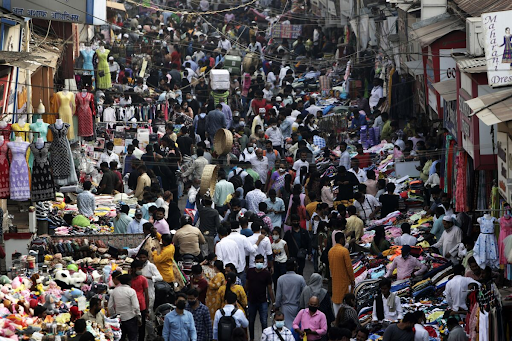On November 15, 2022, world population growth reached the population milestone of 8 billion people. As monumental a milestone as this is, there is quite a lot to discuss what that means for the present and the future. The first subject to mention is the rate at which the population seems to be growing at 0.83% a year.
Even though the world’s population is growing and we just passed the 8 billion people marker, that doesn’t mean that every country is growing at the same rate. It doesn’t even mean that every country is growing. Some countries are losing their population! However, this is not something to be concerned about because the global life expectancy has grown from 29 years to 73 years since 1800, indicating better global health and an older world population. As life expectancy grows in a country, it’s common for the fertility rate to decrease.
How Population Impacts the Business World
The state of the growing world has a significant effect on the business world as it deals with the market and labor. To begin with the bad news, global GDP growth has slowed, with current population projections pushing global GDP up by just 96%. We are also concerned about future labor shortages, and surpluses are expected to turn into deficits, posing a $10 trillion risk by 2030. Furthermore, the expanding sector must serve an aging population. This will increase the number of assisted living facilities, medications, and hospitals. Having said that, there have been some spectacular economic high points this year.
While it is true that we have an older population, this can be advantageous since it can enhance productivity because longer lives lead to higher per capita income. Multinational firms proliferate in larger nations. MNCs and affiliates accounted for 36% of world output in 2016. Last but not least, much of the GDP is transferred to Sub-Saharan Africa. Between 2020 and 2060, Africa’s effective workforce growth rate (2.22%) will surpass that of Europe and the Americas (0.79%). Overall, it looks like there is a bit of a struggle given the more troubling times, but there is a lot of potential to bounce back if not better in the years ahead.
To gather some insights we brought in various experts in the different aspects of global studies to get their take on how we are today and how we can improve in the future. Our milestone, according to António Guterres, the United Nations Secretary-General for 2022, “is a chance to celebrate variety and accomplishments while taking into account humanity’s shared duty for the planet.”
In Conclusion
Not only this year but in general, Dr. Mrittika Shamsuddin, an instructor of development economics at Dalhousie University, made the following observation: “Humanity has achieved enormous progress, with more and more people emerging from poverty and hunger in the midst of population expansion.”
Rapid population expansion, however, might result in pollution, deforestation, resource depletion, traffic congestion, and hence global warming. Dr. Liz Allen was the final expert to provide a quote. She is an ANU scholar and demographer who provided some insightful commentary on population growth: “Population increase and decrease are not inherently undesirable things. The main problem is how a population functions, which is frequently reduced to the fraction of the population of working age.”

Brian Wallace is a Columnist at Grit Daily. He is an entrepreneur, writer, and podcast host. He is the Founder and President of NowSourcing and has been featured in Forbes, TIME, and The New York Times. Brian previously wrote for Mashable and currently writes for Hacker Noon, CMSWire, Business 2 Community, and more. His Next Action podcast features entrepreneurs trying to get to the next level. Brian also hosts #LinkedInLocal events all over the country, promoting the use of LinkedIn among professionals wanting to grow their careers.
Credit: Source link


Comments are closed.